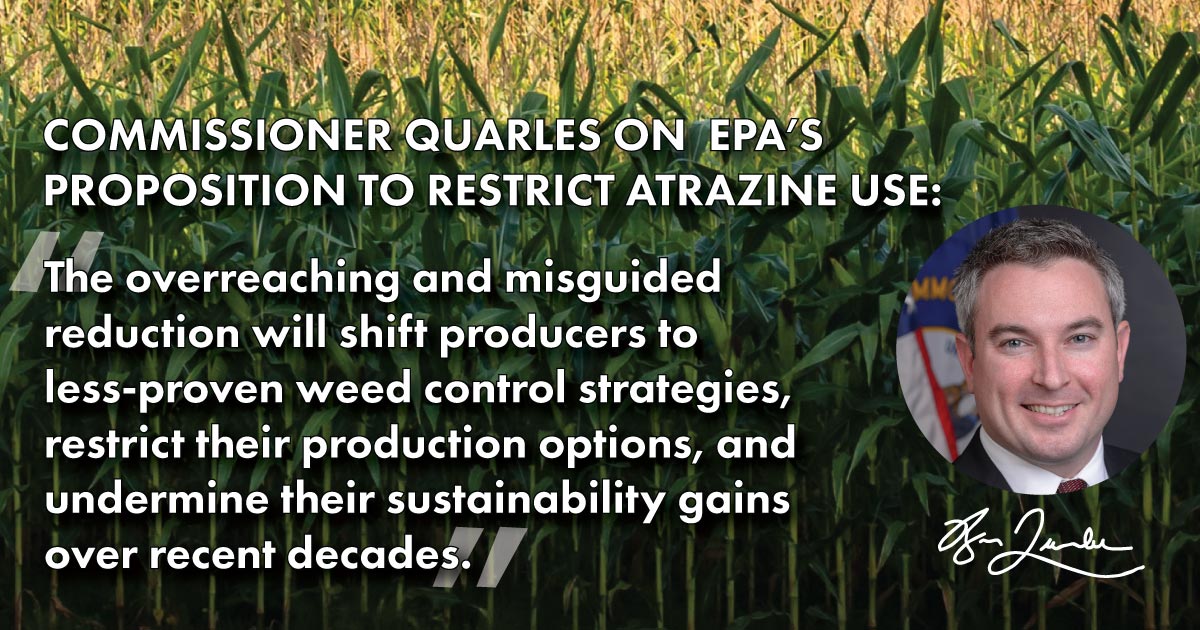
OCT
Quarles submits comments on behalf of farm families urging EPA not to severely restrict use of corn herbicide
Restrictions would impact 81 percent of Kentucky's com acreage
FRANKFORT (Oct. 6, 2022) - Kentucky Commissioner of Agriculture Dr. Ryan Quarles submitted comments this week on behalf of more than 75,000 Kentucky farm families he represents to Michael S. Regan, head of the U.S. Environmental Protection Agency (EPA), concerning the herbicide atrazine.
EPA is proposing to severely limit atrazine levels within watershed areas from the current 15 parts per billion (ppb) to 3.4 ppb, which Commissioner Quarles called "overly restrictive."
“The scientific consensus and six decades of evidence continue to demonstrate that the current tolerance level is safe," Commissioner Quarles wrote.
Quarles noted that implementing these restrictions will impact 81 percent of Kentucky's corn acreage and effectively ban an important crop protection tool that is also used to help control weeds insorghum in Kentucky and sugarcane in other states.
“Most farmers in Kentucky and the nation will be unable to apply atrazine at the 3.4 ppb,” he wrote. “The overreaching and misguided reduction will shift producers to less-proven weed control strategies, restrict their production options, and undermine their sustainability gains over recent decades.”
Michael Williams, director of the KDA’s Division of Environmental Services, hopes the EPA will not change a level that was set just two years ago following years of scientific review.
“It is our hope that the comments submitted will encourage EPA to remain with the previously established guidelines of the 15 ppb,” Williams said, “and producers will continue to have this important weed management tool available for many years to come.”
Commissioner Quarles noted the combination of atrazine and no-till crop production lessens fuel expenses and allows farmers to implement carbon-smart production systems that can lower soil erosion by up to 90 percent.
“KDA asks that the EPA provides for a full and fair consideration of common sense and scientific solutions within the applicable laws, policies, and regulations that enable our producers to continue their role in sustainably feeding our citizens at home and across the globe,” he concluded.
To read Commissioner Quarles’ comments in their entirety, click here.

